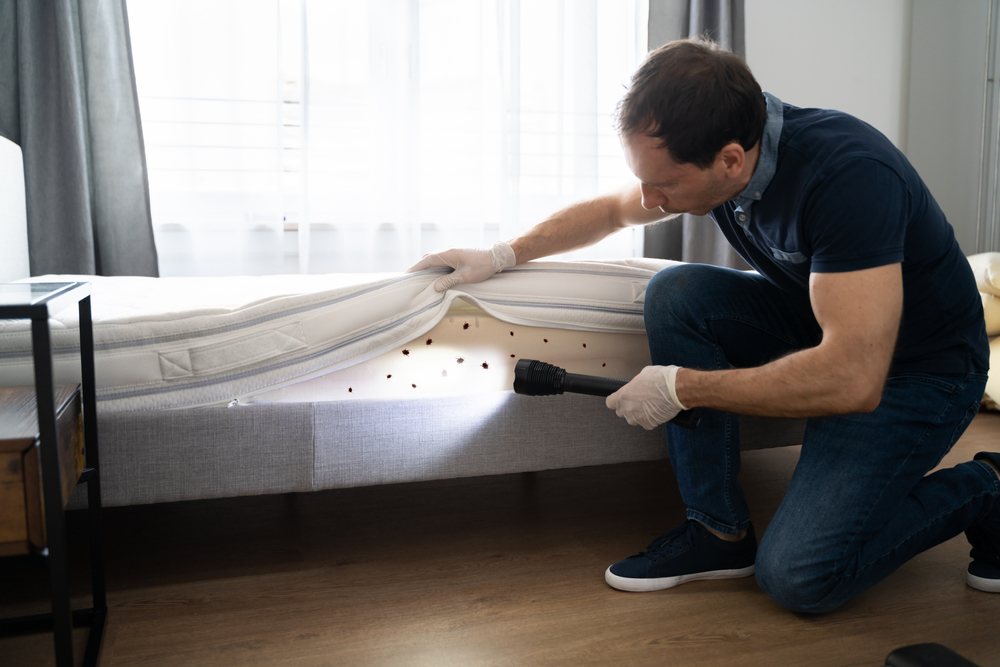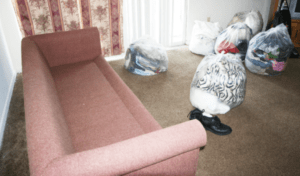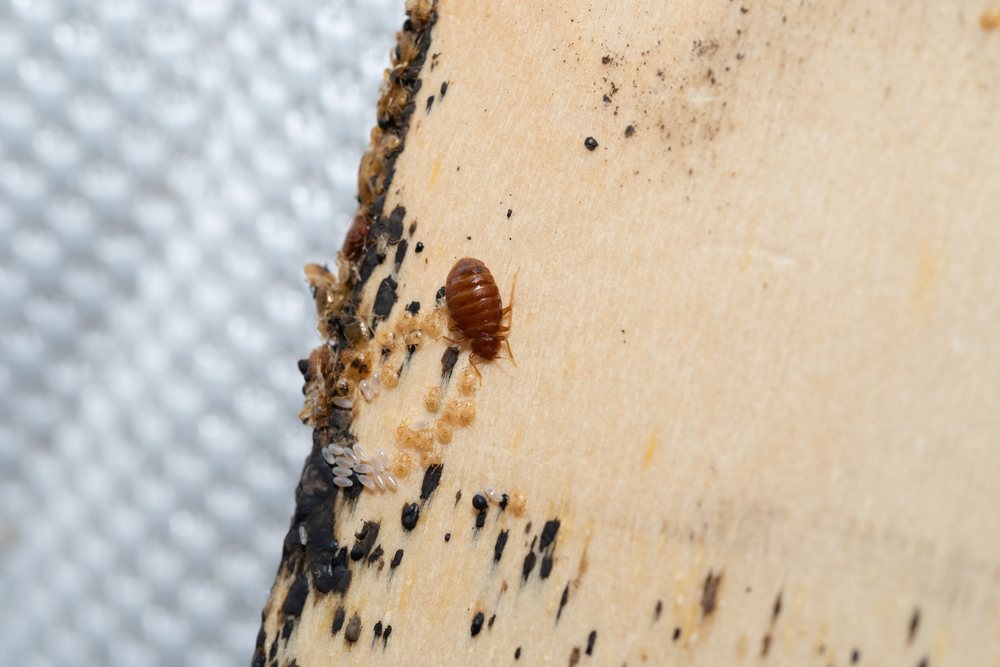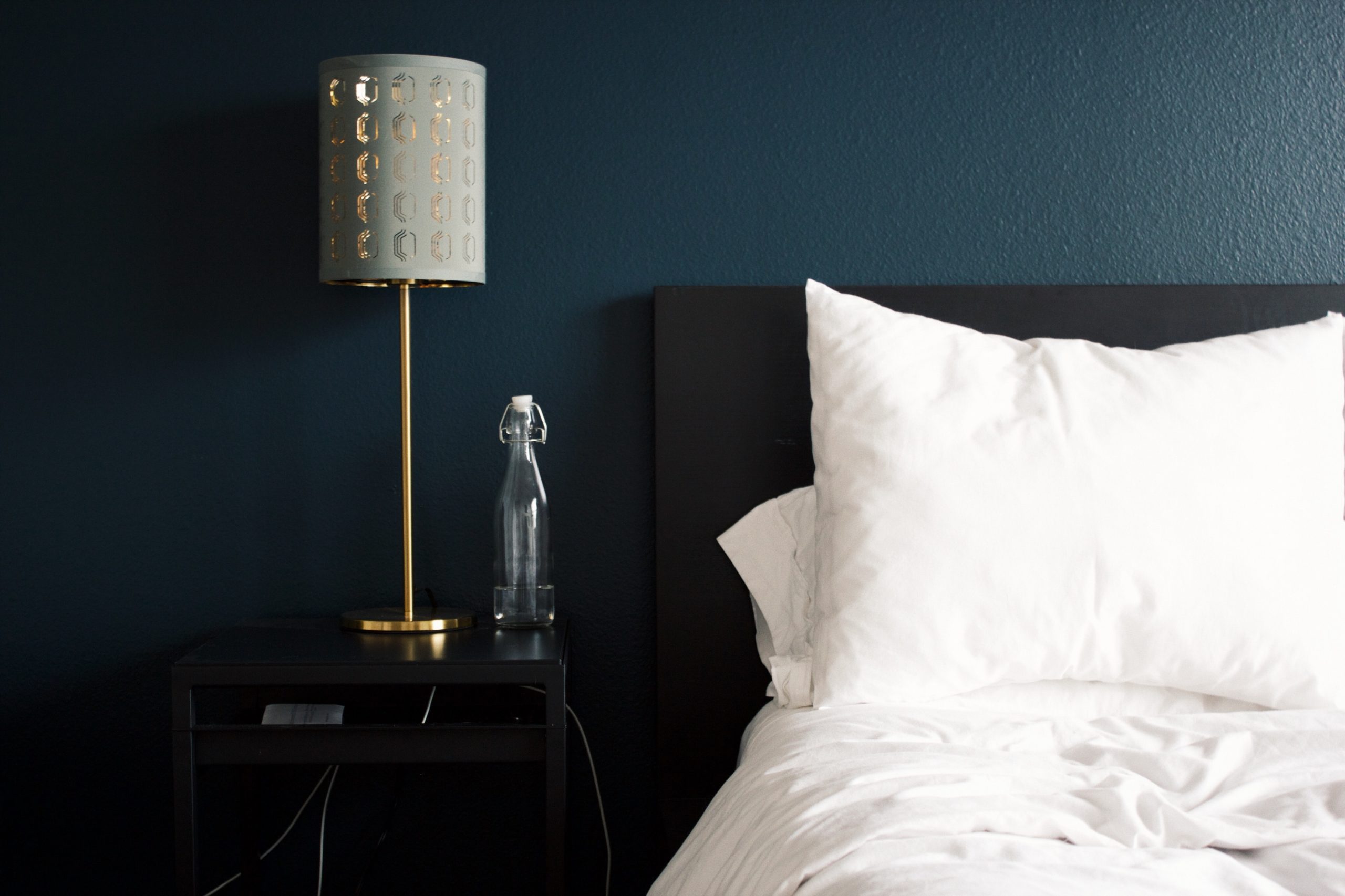Bed Bugs can cause real problems – and in some cases, the cause is unclear as to how you were introduced to an infestation. Knowing how bed bugs spread can help you avoid future infestations.
Bed bugs are also effective at remaining unnoticed by humans as they spread, until they start feeding. Their small size and flat bodies allow them to hide in dark, secluded, tight spaces out of sight, including behind headboards and within crevices of upholstered furniture. Their flatness also helps keep them safe from being squished if their host rolls over on them in bed.
The key to preventing an infestation is to understand how they spread and the locations they’re most likely to reside.
Here are some of the common causes of bed bugs and how to avoid them by taking certain precautions.
Bed Bug Spreading Through Travel
Bed bugs rank among traveler’s top concerns, along with lost luggage and food poisoning. Many people are in denial that they can suffer an infestation on their travels, but the fact is that bed bug infestations are on the rise throughout the U.S., and travel is a root cause.
Private homes and businesses alike have experienced issues with bed bugs. While they were once a bigger problem primarily for hotels and other businesses in the hospitality industry, many businesses are vulnerable to bed bugs today including hospitals, universities and colleges, movie theaters, retail stores, libraries, and many others.
One of the biggest reasons for bed bugs’ spread in the U.S. through travel is the increase in global travel. In the last two decades, more people have traveled to countries and cities where bed bugs are more commonplace, bringing them back to the U.S. in the process.
Use of Second Hand Furniture
One of the other main causes of bed bugs is the increased popularity of second-hand furniture. Oftentimes bed bugs spread throughout a home or business when an infested piece of furniture is brought into the property.
Rented furniture is another potential culprit for an infestation if a property with an existing infestation spreads the bed bugs to the furniture, which is then insufficiently inspected before another property rents it.
Bed bugs can also survive for months at a time without consuming any blood, which allows them to live on furniture without a host until they have access to one. This means that simply isolating furniture won’t guarantee that an infestation is eliminated as the bugs merely remain dormant.
Infestations can also spread when renters and homeowners bring discarded furniture into a home, which the previous owners may have thrown out specifically because of bed bugs.
How to Avoid Bed Bugs When Traveling
There are several steps you can take to avoid bed bug infestations when traveling domestically or globally.
Always Inspect the Bed
As soon as you enter your hotel room, inspect the bed before settling in. You can do so by pulling the sheets back and carefully examining the box spring and mattress seams to locate signs of an infestation. The potential signs of a bed bug infestation can include dead or living bed bugs that are about the size of an apple seed, or black spots indicating bed bug feces, which often look like marker stains.
Make Sure Luggage Is Far from the Bed
You can further prevent bed bug infestations by keeping all luggage far from the bed when staying at a hotel. Store your luggage in the bathroom, closet, or another location that’s far enough from the bed.
Check All Luggage Prior to Packing or Unpacking
You can also prevent the spread of bed bugs by checking your luggage before packing and unpacking during your trips and when you arrive at home. Also, inspect all clothes inside of your suitcases and other items, including all zipped compartments. Once you return home, perform one final check to ensure that bed bugs won’t spread throughout the home.
Thoroughly Wash All Clothing
You should also wash all of your clothes once you arrive at home. Putting them in the dryer for around 20 minutes or longer will kill any bed bugs present. Following the drying cycle, you can then wash the clothes in hot water and soap before drying again. Heat is one of bed bugs’ biggest enemies, so you’ll want to make sure that you expose your clothing to enough of it to sufficiently prevent any infestation.
Taking all of these precautions on your travels can help you avoid any bed bug infestations in the future. However, if you do encounter bed bugs as a result of another party’s negligence and failure to prevent their spread, you may be entitled to compensation with the help of a bed bug attorney – Let us find you an experienced and personalized bed bug lawyer today!








Can bed bugs get on mattresses and box springs that have been covered with zip up bed bug covers
Hi Debbie – Yes bed bugs can still get on a mattress that is covered. The idea behind the sealed cover is that bed bugs cannot hide within the mattress or box spring. It also traps bed bugs that were already hiding inside/around the mattress.